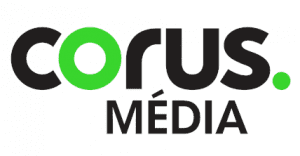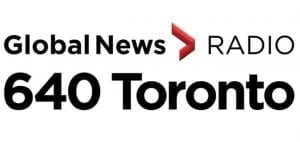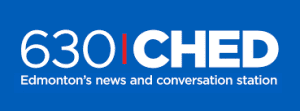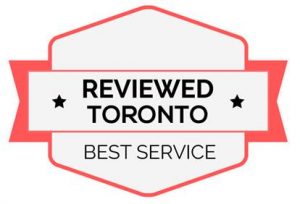Income tax is the percentage of your earnings (business or personal) that you pay to the government. Canada's income tax system is graduated, meaning that your tax rate will depend on what you earn.
Canada Revenue Agency (CRA), which manages the income tax revenue, is responsible for financing various government services. These services include vital sectors such as healthcare, education and the military. A portion of income tax revenue goes towards helping eligible Canadians through various programs, such as Canada Child Benefit, Old Age Security or Guaranteed Income Supplement.

According to the Canada Revenue Agency, the purpose of income tax in Canada is to allow the government to use taxes to support the federal, provincial,territorial, and municipal levels of government.
Taxes also help pay for programs and services that the government offers. The tax system in Canada supports the high quality of life enjoyed by all Canadians, including newcomers. Your contributions through taxes are vital in funding many things, from building roads and bridges to Canada’s education and healthcare system. Taxes are a part of being an accountable citizen and a legal obligation.
Taxes are complex, there's no denying that. This page provides you with all the information you need to understand Canada's complex tax system and certain strategies you can use to mitigate certain tax liabilities.
There are many ways to lower income tax in Canada. One of such ways is through contributing to your RRSP. Maximizing your contributions to your RRSP for the year is a reliable method to decrease your taxes, regardless of whether you are employed by a company or self-employed. Your RRSP contributions are eligible for tax deductions. These deductions reduce the amount of tax you owe in the year you claim them and enable you to pay lower taxes.
The funds you contribute to your RRSP grow tax-free until you withdraw them during retirement. The benefit of this is that your income tax rate is expected to be lower during retirement. Why is this advantageous? It means your income tax bill should also be lower.
Another way to reduce your tax liability is through making charitable donations. In a particular tax year, charitable donations to a registered organization or a recognized recipient can provide you with tax credits.
According to the Canada Revenue Agency, in any one year, you may claim:
You are also allowed to claim eligible amounts of gifts to a limit of 75% of your net income based on types of gifts that qualify.
It’s important to note that this is a non-refundable tax credit. This means that the tax savings applicable to eligible donations can be used to reduce any tax you owe, but if you don't owe any taxes, the donation tax credit cannot be refunded to you.
We strongly recommend that you shield your wealth from taxes through implementing the process of Becoming Your Own Banker. By doing this, you control the motion of the money and allow it to directly flow back to you.
Alberta has the lowest tax rate among Canadian provinces due to several factors. Alberta has the highest personal basic amount in Canada at $19,369. Comparatively, the federal amount is $14,398. If you live in Alberta, your income will be taxed only if it exceeds the federal basic amount of $14,398.
Alberta doesn't impose any provincial sales taxes. Residents and businesses are therefore exempted from paying additional taxes on top of the federal Goods and Services Tax of 5%. Can you hear the mountains calling?
Alberta has the highest average household income and the third highest individual income in Canada.Alberta's average individual income is $61,865, and the average household income is $80,445.
Income tax rates in Alberta vary from 10% to 15%, while the marginal income tax rates range from 25% to 48%. It is also important to note that Alberta's lowest income tax bracket consists of a significantly higher salary range compared to other provinces or territories.
Quebec has the highest rate of income tax amongst all provinces and territories in Canada.
Quebec's higher tax rates are due to its unique characteristics and social services, such as having a larger number of services compared to other provincial governments, which include colleges, universities, community health clinics (CLSCs), daycare centers, and more. It also places significant investments in the art and culture sectors.
Quebec is ranked 9th in the country for average income per individual, but it has the highest average income per household across Canada.
Here are other things to note:
The new federal personal income tax brackets and tax rates are as follows:
The corporate tax rate is broken down into:
According to the Canada Revenue Agency, the base rate of Part I Tax is 38% on your taxable income and 28% after Federal tax reduction.
After the general reduction in tax, the net tax is 15%.
The net tax rate for private Canadian corporations that claim the small businesses deduction is 9%.
In general, provinces have two income tax rates – one lower and one higher.
The income that is eligible for the small business deduction will be taxed at a lower rate. The business limit is one component of the small-business deduction. Some provinces and territories also use the federal small business limit. Some provinces and territories set their own limits.
Higher Rate
All other income is subject to the higher tax rate.Tax rates for provinces and territories (except Quebec & Alberta)
Exemption Quebec and Alberta do not have corporation tax collection agreements with the CRA
Dividends in Canada are subject to taxation at both the federal and provincial levels. The Canada Revenue Agency applies different tax rates depending on whether the dividends are eligible or non-eligible.
Eligible dividends are taxed at a rate of 15.0198% on the taxable portion, while non-eligible dividends are taxed at a rate of 9.031%.
In most cases, the earnings of a minor are typically below the personal credit threshold, which is about $13,808. If the earnings of a minor are below this threshold, they will not be liable for any tax. Minors in Canada who do not owe any tax are usually exempt from filing a return

Get Access To Our On-Demand Training To See How You Can Further Understand The Role Of Beneficiaries.








©2023 Ascendant Financial All Rights Reserved | Terms & Privacy Policy | DMCA
© 2023 Ascendant Financial Inc. All rights reserved.
The supporting material, audio and video recordings and all information related to Introduction to Becoming Your Own Banker, The Infinite Banking Concept (IBC) posted on www.ascendantfinancial.ca and all other Ascendant Financial Inc. websites are designed to educate and provide general information regarding The Infinite Banking Concept (IBC) and all other subject matter covered. It is marketed and distributed with the understanding that the authors and the publishers are not engaged in rendering legal, financial, or other professional advice. It is also understood that laws and practices may vary from province to province and are subject to change. All illustrations provided in these materials are for educational purposes only and individual results will vary. Each illustration provided is unique to that individual and your personal results may vary. Because each factual situation is different, specific advice should be tailored to each individual’s particular circumstances. For this reason, the reader is advised to consult with qualified licensed professionals of their choosing, regarding that individual’s specific situation.
The authors have taken reasonable precautions in the preparation of all materials and believe the facts presented are accurate as of the date it was written. However, neither the author nor the publishers assume any responsibility for any errors or omissions. The authors and publisher specifically disclaim any liability resulting from the use or application of the information contained in all materials, and the information is neither intended nor should be relied upon as legal, financial or any other advice related to individual situations.
Family Banking System (FBS)™ is a trademark of Ascendant Financial Inc. © Ascendant Financial Inc., 2024. All rights reserved. The phrase “Live the Lifestyle, Love the Process, Infinite Banking” is a registered copyright (Registration No. 1209863) with the Canadian Intellectual Property Office. Unauthorized use, reproduction, distribution, or copying of this phrase, in whole or in part, without express written permission from Ascendant Financial Inc. is strictly prohibited. This copyright is protected under Canadian intellectual property laws and regulations. Any unauthorized use is subject to legal action and enforcement under Canadian law. For inquiries or requests for permission to use this copyright, please contact Ascendant Financial Inc.
The Infinite Banking Concept® is a registered trademark of Infinite Banking Concepts, LLC. Ascendant Financial is independent of and is not affiliated with, sponsored by, or endorsed by Infinite Banking Concepts, LLC.”
This content is intended for Canadian residents of BC, AB, SK, MB, ON, NB, NS, NU, YT, PEI & NFLD only.